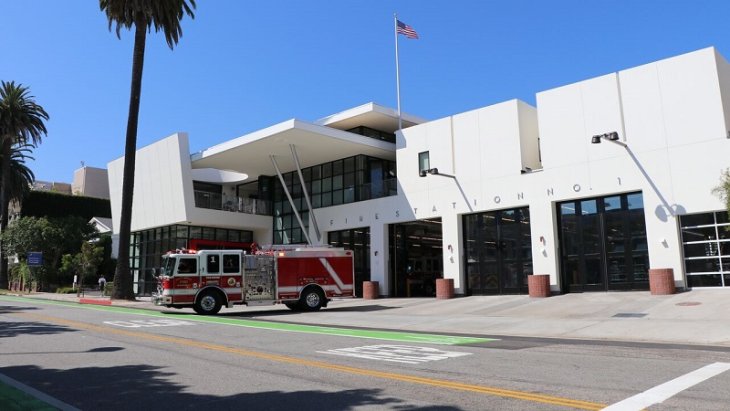
A Los Angeles city councilman said today he wants to set a goal of dramatically reducing greenhouse gas emissions in Los Angeles by 2050.
Other cities including San Francisco, New York, Toronto, Boston, and Chicago already have committed to cutting emissions to 80 percent below 1990 levels by 2050.
“It’s high time Los Angeles did the same,” said Councilman Paul Koretz, who joined a coalition of clean energy advocates at City Hall to call for a similar goal in Los Angeles.
Koretz warned that if nothing is done to scale back pollution, environmental disasters such as droughts, floods and fires could escalate worldwide.
“We have the greatest challenge any generation has ever faced looming before us,” Koretz said. “And here, locally we’re in the worst drought in California history — that’s our weather extreme. The climate crisis is no longer out there in the future. It’s here, it’s now, we’ve moved into an age of extremes.”
Even with a temperature increase of just one degree, the planet is at risk of being “seriously changed,” he said.
An increase in the world’s temperature by more than 2 percent is unavoidable even when steps are taken, Koretz said.
If no steps are taken, the climate could get hotter by more than 5 percent, according to the councilman, who pointed to a chart with a steeply rising line showing the trajectory of future temperatures.
“I don’t even want to think about what this could bring us,” he said.
But reaction to pollution-linked weather changes has been in “stasis,” with some in the business community “shrugging (their) shoulders and saying hey, let’s just adapt, it’ll be fine,” Koretz said.
Representatives of a group calling itself the L.A. Clean Energy Coalition that also spoke at City Hall in favor of the goal said climate change has negative economic consequences, while proposed steps to reduce pollution offer economic benefits.
The coalition is made up of the Sierra Club, the Los Angeles Business Council, Communities for a Better Environment, Global Green and Environment California.
Koretz introduced a motion in City Council that if approved, would instruct various city departments to suggest ways the city could reach the 80 percent reduction goal.
His motion also calls on the Dept. of Water and Power to reduce emissions to 80 percent below1990 levels by 2030, which is 20 years earlier than the proposed citywide goal.
Citywide emissions have already been trimmed to 30 percent below 1990 levels, as of 2013, according to figures provided by Koretz’s aides.
The Water and Power agency is also taking steps to transition completely away from coal energy by 2025, which would reduce emissions to 59 percent below 1990 levels, aides said.
The City Council also approved a resolution backing President Barack Obama’s proposal to cut power plant pollution nationwide 30 percent by the year 2030.





















